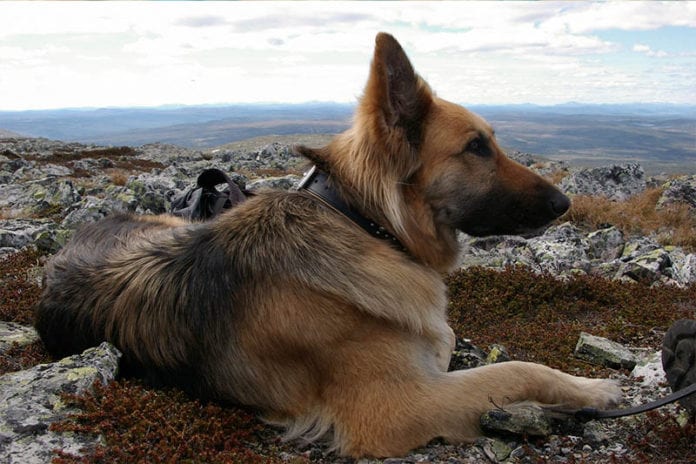Klinger, a two year-old German Shepherd, will make history this week by becoming the first professionally trained running guide dog to assist an athlete who is visually impaired. Klinger's placement marks the initiation of the Running Guides pilot program at Guiding Eyes for the Blind—an internationally accredited nonprofit that provides guide dogs to those with vision loss. With this, it is hoped a new expansion of the organization's commitment to increasing independence for people with visual impairments will follow.
The Running Guides program, still in the developmental phase, was established to support the underserved community of runners who are visually impaired. "This pilot program is focusing on the feasibility of selecting and specially training dogs for their partners on approved exercise routes prior to being issued in class," said Benjamin Cawley, class supervisor for Guiding Eyes for the Blind. "We will continue to build our techniques and hope to one day shift from an experimental pilot to a fully-implemented program."
Following a graduation ceremony on Saturday, August 22 at Guiding Eyes for the Blind's campus in Yorktown Heights, Klinger will join his new partner, Lt. Richard Hunter of San Francisco. It was while serving in the United States Marine Corps that Hunter was diagnosed with degenerative vision loss. Now an accomplished marathoner and triathlete, his work with the United States Association of Blind Athletes led to his collaboration with Guiding Eyes in organizing a panel of blind runners to identify the specific needs and challenges that a running guide dog program should address.
The challenge with training a guide dog to work at a running pace is the speed at which they are working, which is why the Running Guides curriculum utilizes specialized training techniques to ensure dogs are able to provide clearance and guide work tasks reliably at higher speeds. The program has specifically addressed these and other concerns with training that has seen Klinger login over 200 miles with sighted trainers as well as those with vision loss.
For Hunter, Klinger's graduation will mark an upgrade in quality of life, offering him a new sense of independence. "Being active and pushing myself to the max is a passion of mine. Having Klinger by my side to help in training will be a tremendous help," says Hunter. "And the best thing about having Klinger as a running buddy is that he can't cancel on me at the last minute." The two will begin training for the California International Marathon upon their arrival in California.
For more information on Klinger's graduation, the Running Guides program or Guiding Eyes, visit https://www.guidingeyes.org/.
Guiding Eyes is a nonprofit organization that provides superbly bred and trained guide dogs to men and women who are blind or visually impaired. Dogs not suited for guide work may become service dogs for children on the autism spectrum. All Guiding Eyes dogs expand horizons for people to achieve life's goals.


